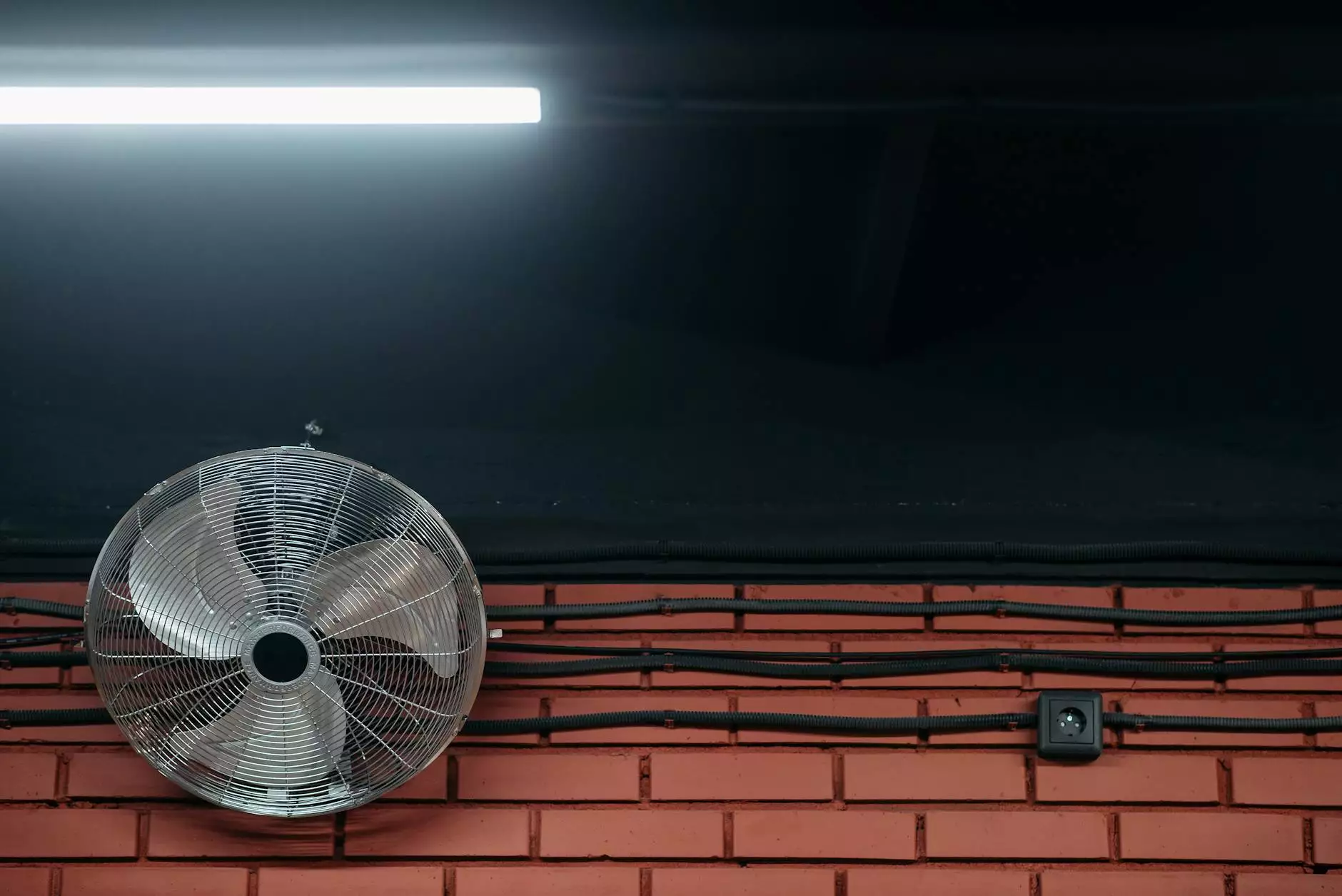Ultimate Guide to Heating & Air Conditioning for Your Business

In today’s fast-paced commercial environment, maintaining an ideal climate within your business premises is not merely a comfort—it is a necessity. Proper Heating and Air Conditioning (HVAC) systems ensure that your employees and customers alike enjoy a comfortable atmosphere that can significantly enhance productivity and satisfaction. In this comprehensive guide, we will explore the essentials of heating and air conditioning, delving into various systems, maintenance practices, energy efficiency, and how businesses can benefit from reliable HVAC solutions. Read on to understand why proper HVAC is pivotal for your business's success.
Why Heating and Air Conditioning Matters in Business
Investing in a high-quality HVAC system goes beyond mere temperature control. Here are some reasons why it is vital for businesses:
- Employee Productivity: Studies show that comfortable working conditions can lead to a significant increase in productivity. A well-regulated temperature controls not just the heat or coolness but also the overall mood and efficiency of your team.
- Customer Satisfaction: For retail businesses, customer comfort can directly influence their buying decisions. A cool, refreshing atmosphere encourages longer visits and can increase sales.
- Health & Safety: A quality HVAC system improves air quality by filtering out impurities and providing necessary ventilation. This is crucial in preventing health issues and ensuring a safe environment, especially in an era where health is a priority.
- Cost Management: Efficient heating and cooling can reduce energy bills. Modern HVAC systems are designed to operate at minimal energy usage, leading to substantial savings over time.
Types of HVAC Systems for Businesses
Choosing the right HVAC system is critical and depends on various factors, including the size of your business, your climate, and your budget. Here are the most common types of systems to consider:
1. Centralized HVAC Systems
Centralized systems distribute heating and cooling through air ducts. This setup is ideal for larger office spaces that require uniform temperature control. These systems offer high efficiency and can handle larger spaces, making them a preferable choice for many businesses.
2. Split HVAC Systems
Split systems are popular for their flexibility and efficiency. They consist of two main components: an indoor unit and an outdoor compressor. This type offers the advantage of being quieter than centralized systems. It's an excellent solution for small to medium-sized offices or buildings that don’t have full ductwork installed.
3. Ductless Mini-Split Systems
Ductless mini-split systems are ideal for businesses without existing ductwork. They allow for precise temperature control in individual rooms, which helps in boosting energy efficiency and comfort. This system is especially beneficial for older buildings or commercial spaces undergoing renovation.
4. Packaged HVAC Units
Packaged systems combine heating and cooling components into one unit, typically installed on the roof. These units save space and are particularly effective for businesses with limited ground space. They're often easy to maintain and can power multiple zones.
Benefits of Advanced HVAC Technologies
Emerging technologies in the HVAC industry are making systems more efficient and eco-friendly. Here are some benefits associated with advanced HVAC solutions:
- Smart Thermostats: With programmable smart thermostats, businesses can optimize energy usage according to their schedules. This technology allows for remote adjustment via mobile apps, making it easier to manage heating and cooling when the business is closed.
- Energy Efficient Models: New energy-efficient HVAC units use less energy than their predecessors, significantly reducing costs while maintaining performance.
- Improved Air Filtration: Modern systems include superior air filters that trap allergens and pollutants, enhancing the overall air quality and promoting a healthier workplace.
- Environmentally Friendly Options: Many businesses are now opting for HVAC solutions that use environmentally friendly refrigerants, helping to minimize their carbon footprint.
Maintaining Your HVAC System
Implementing an appropriate maintenance regime is essential to keep your HVAC system running smoothly and efficiently. Regular maintenance can lead to improved performance, extended system life, and significant cost savings. Here are crucial maintenance tips:
1. Regular Inspections
Scheduling routine inspections can help catch potential issues before they escalate. It's recommended to have professionals check your HVAC system at least once or twice a year.
2. Change Filters Frequently
Filters trap dust, allergens, and debris, which means they need to be changed regularly to ensure optimal airflow. For most businesses, changing filters every 1-3 months is ideal.
3. Clean Coils and Drain Lines
Dirty coils can reduce the system's efficiency, while clogged drain lines can lead to water damage. Regularly cleaning these components is vital for performance.
4. Monitor Thermostat Settings
Ensure that your thermostat settings align with your business hours to avoid unnecessary energy consumption when the building is unoccupied.
Energy Efficiency and Cost Savings
Investing in an energy-efficient HVAC system can lead to substantial financial savings. Here’s how:
- Lower Utility Bills: Energy-efficient systems consume less energy, leading to reduced utility costs, which can be redirected towards other crucial business areas.
- Tax Incentives: Many energy-efficient systems qualify for government tax incentives or rebates, providing an additional financial benefit to businesses.
- Long-Term Investment: A well-maintained system can last 15-25 years, making it a cost-effective investment that pays off over time.
Choosing the Right HVAC Provider
Finding a reliable HVAC contractor is critical for ensuring your system is installed correctly and maintained consistently. Here are tips on selecting the best HVAC provider:
1. Research and Reviews
Look for contractors with solid reputations in your community. Websites like Google My Business and Yelp can provide insights through customer reviews.
2. Certifications and Licensing
Ensure the HVAC provider has valid licenses and certifications. This indicates they meet industry standards for service and safety.
3. Warranty and Support
Opt for providers that offer favorable warranty terms and ongoing support. This indicates a commitment to customer satisfaction and service quality.
4. Experience and Expertise
Choose contractors with extensive experience in commercial HVAC. Their knowledge of different systems will be beneficial in selecting the best solution for your business.
Conclusion
Ensuring your business has an effective Heating and Air Conditioning (HVAC) system is crucial in today’s competitive market. From increasing employee productivity to enhancing customer satisfaction, a well-functioning HVAC system plays an integral role in operational success. Remember to prioritize maintenance, choose a reliable HVAC provider, and consider energy-efficient options to optimize performance while saving costs. As we advance towards more sustainable practices, integrating modern HVAC technologies will not only improve comfort levels but also contribute positively to the environment.
For more information on quality HVAC solutions for your business, visit https://dihaairconditioning.com/.









